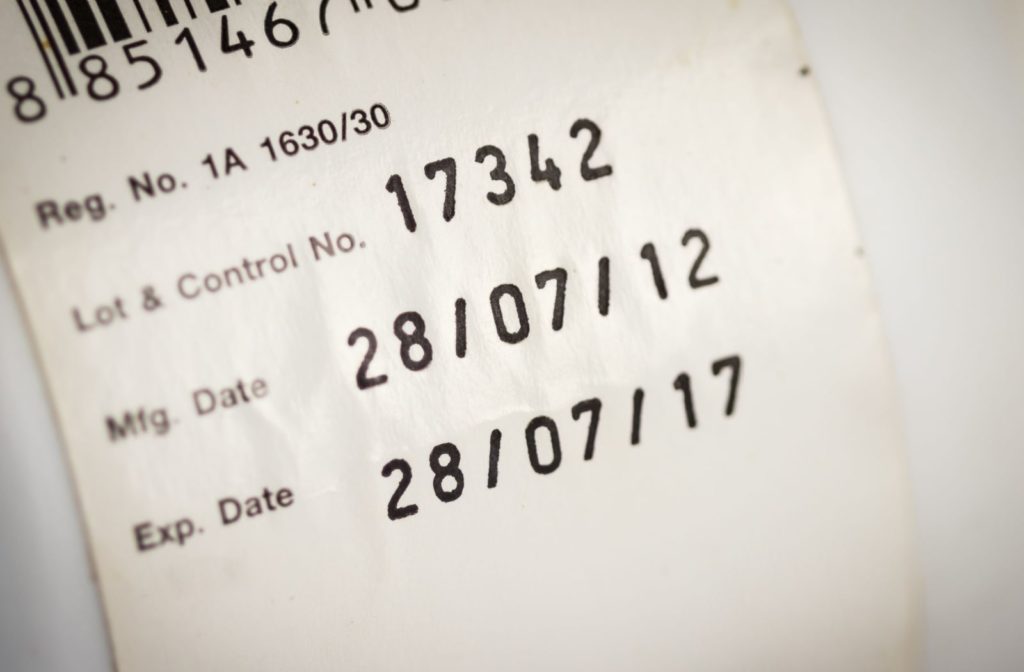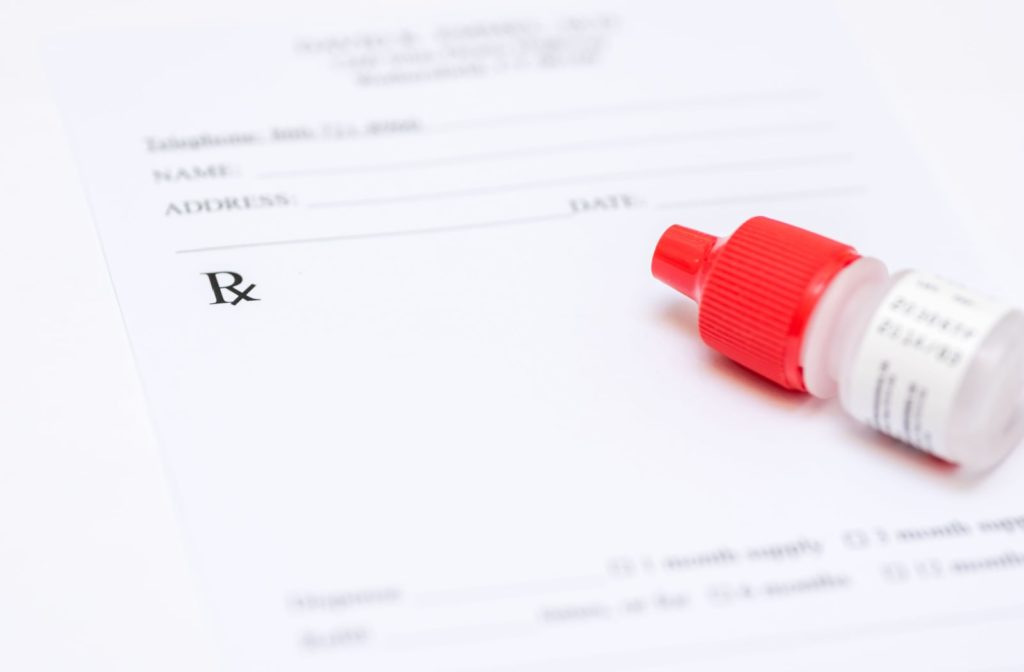Eye drops are a common household item, providing quick relief for a wide range of eye problems such as dryness, allergies, and infections. For a lot of people, they get tucked in a drawer or cabinet and are forgotten about until there’s a need for them.
But when was the last time you thought about an expiry date for your eye drops? It may not be the first thing that comes to mind, but eye drops do have an expiry date, and for good reason.
Types of Eye Drops
There are numerous types of eye drops, each of which is intended to treat a specific eye condition or issue. Here are a few examples of the most common kinds:
- Artificial tears
- Anti-allergy
- Anti-redness
- Antibiotic
- Steroid
Artificial Tears
Artificial tears are intended to relieve dry eyes, which can be caused by a number of factors, such as:
- Aging
- Computer use
- Certain medications
To treat various dry eye conditions, artificial tears come in a variety of viscosities ranging from watery to thick gels.
Anti-Allergy Eye Drops
Anti-allergy drops are used to relieve itching, redness, and swelling caused by allergies. These drops contain antihistamines, decongestants, or both to help alleviate allergy symptoms.
Anti-Redness Eye Drops
Anti-redness drops are used to treat eye redness caused by a variety of factors, including:
- Allergies
- Dry eyes
- Exposure to wind and sun.
To reduce redness, these drops contain ingredients that constrict blood vessels.
Antibiotic Eye Drops
Antibiotic drops can be used to treat bacterial infections such as:
- Conjunctivitis
- Corneal ulcers
- Blepharitis
These drops contain antibiotics, which aid in killing the bacteria that cause infections.
Steroid Eye Drops
Steroid drops are used to treat eye inflammation and swelling.

Why Do Eye Drops Expire?
Using outdated or expired eye drops can have serious consequences for your vision, but many of us don’t think twice about checking the expiration date first.
Eye drops, like any other medication, have an expiration date that the manufacturer determines based on stability testing. The shelf life of eye drops varies depending on the ingredients and preservation methods used.
After the expiration date, eye drops may become less effective and potentially harmful to the eyes.
What Will Happen If I Keep Using Expired Eye Drops?
Bacteria can grow in eye drops that have been opened and used after their expiration date, and these bacteria can cause mild to severe infections.
It’s best to replace expired eye drops and discard any unused drops that have been opened for longer than the recommended shelf life.
How to Correctly Store Eye Drops
Storing eye drops correctly can help to extend their shelf life and keep them working effectively.
- Keep them cool: Store eye drops at room temperature or in a cool, dark place. Avoid storing them in hot or humid environments because they may deteriorate faster.
- Avoid keeping them in direct light: It’s best to keep eye drops in a dark place, such as a cabinet or drawer.
- Keep them tightly sealed: To prevent contamination and evaporation of the solution, keep the bottle tightly sealed at all times.
How to Use Eye Drops
The proper application of eye drops can help ensure that they are both effective and safe for your eyes. Here are some pointers on how to properly use eye drops:
- Before using eye drops, make sure to thoroughly wash your hands to reduce the risk of contamination.
- Tilt your head back and look up. This will help to ensure that the drops enter your eye instead of running down your cheek.
- Squeeze the correct amount of drops into your eye. Eye irritation and other side effects can occur if eye drops are used excessively.
- Close your eye gently after applying the drops, and keep it closed for a few seconds to allow the drops to be absorbed.
- Avoid touching the eye drop bottle’s tip with your fingers or your eyes, as this can introduce bacteria into the solution and cause eye infections.
- Make sure to follow the directions for using your eye drops, including how often and for how long you should use them.
When you use eye drops correctly, you can help ensure that they are effective and safe for your eyes. If you have any questions or concerns about using eye drops, you should always seek specific advice and information from your eye doctor.
Do You Have Questions About Your Vision?
To maintain good eye health, it’s important to take care of your eyes and use eye drops correctly. Regular eye exams can also help you maintain clear vision and detect eye problems early when they are often more treatable.
Book an appointment with Doctors EyeCare Grand Prairie if you have concerns about your eye health or if you’re experiencing any symptoms such as redness or pain after using eye drops.




